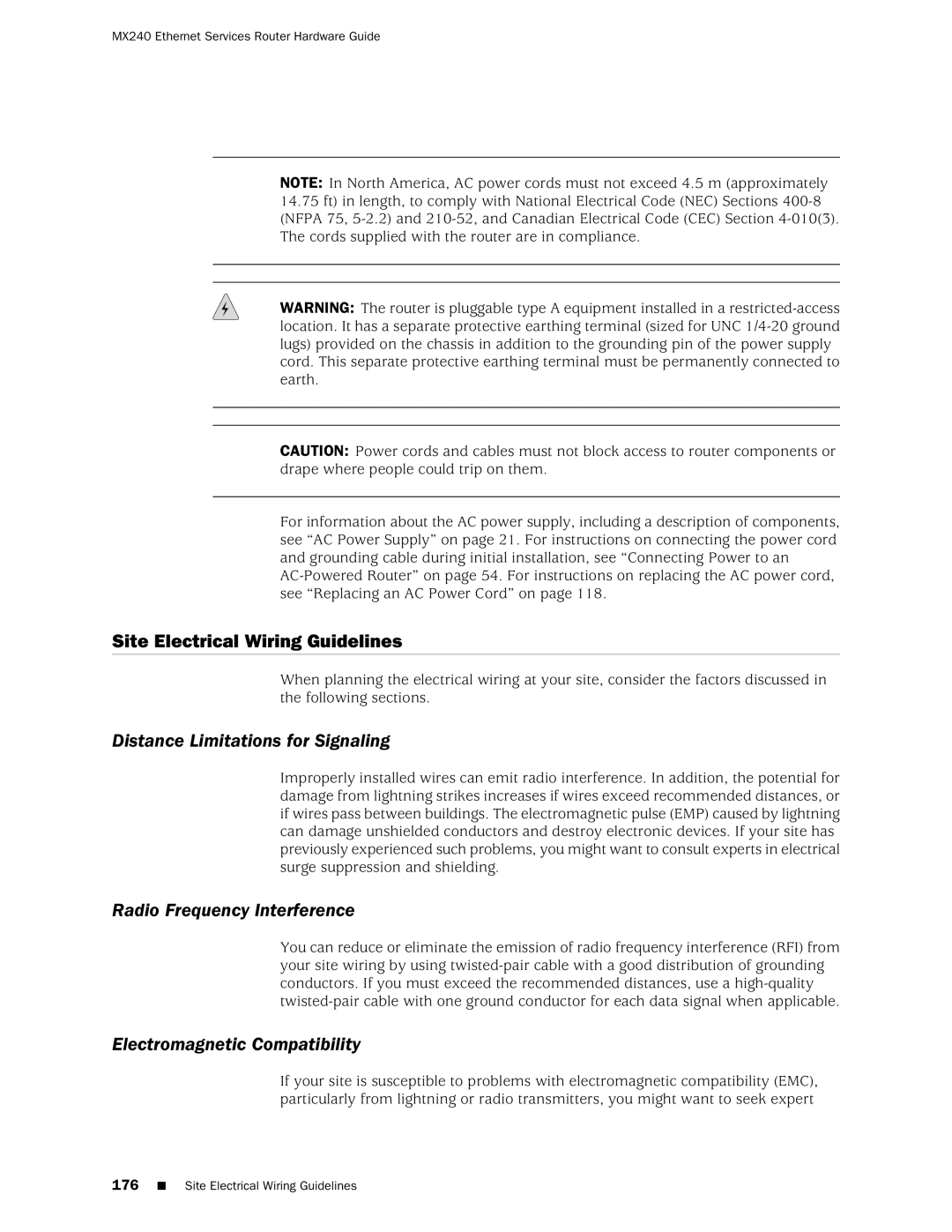
MX240 Ethernet Services Router Hardware Guide
NOTE: In North America, AC power cords must not exceed 4.5 m (approximately
14.75ft) in length, to comply with National Electrical Code (NEC) Sections
WARNING: The router is pluggable type A equipment installed in a
CAUTION: Power cords and cables must not block access to router components or drape where people could trip on them.
For information about the AC power supply, including a description of components, see “AC Power Supply” on page 21. For instructions on connecting the power cord and grounding cable during initial installation, see “Connecting Power to an
Site Electrical Wiring Guidelines
When planning the electrical wiring at your site, consider the factors discussed in the following sections.
Distance Limitations for Signaling
Improperly installed wires can emit radio interference. In addition, the potential for damage from lightning strikes increases if wires exceed recommended distances, or if wires pass between buildings. The electromagnetic pulse (EMP) caused by lightning can damage unshielded conductors and destroy electronic devices. If your site has previously experienced such problems, you might want to consult experts in electrical surge suppression and shielding.
Radio Frequency Interference
You can reduce or eliminate the emission of radio frequency interference (RFI) from your site wiring by using
Electromagnetic Compatibility
If your site is susceptible to problems with electromagnetic compatibility (EMC), particularly from lightning or radio transmitters, you might want to seek expert
176■ Site Electrical Wiring Guidelines
